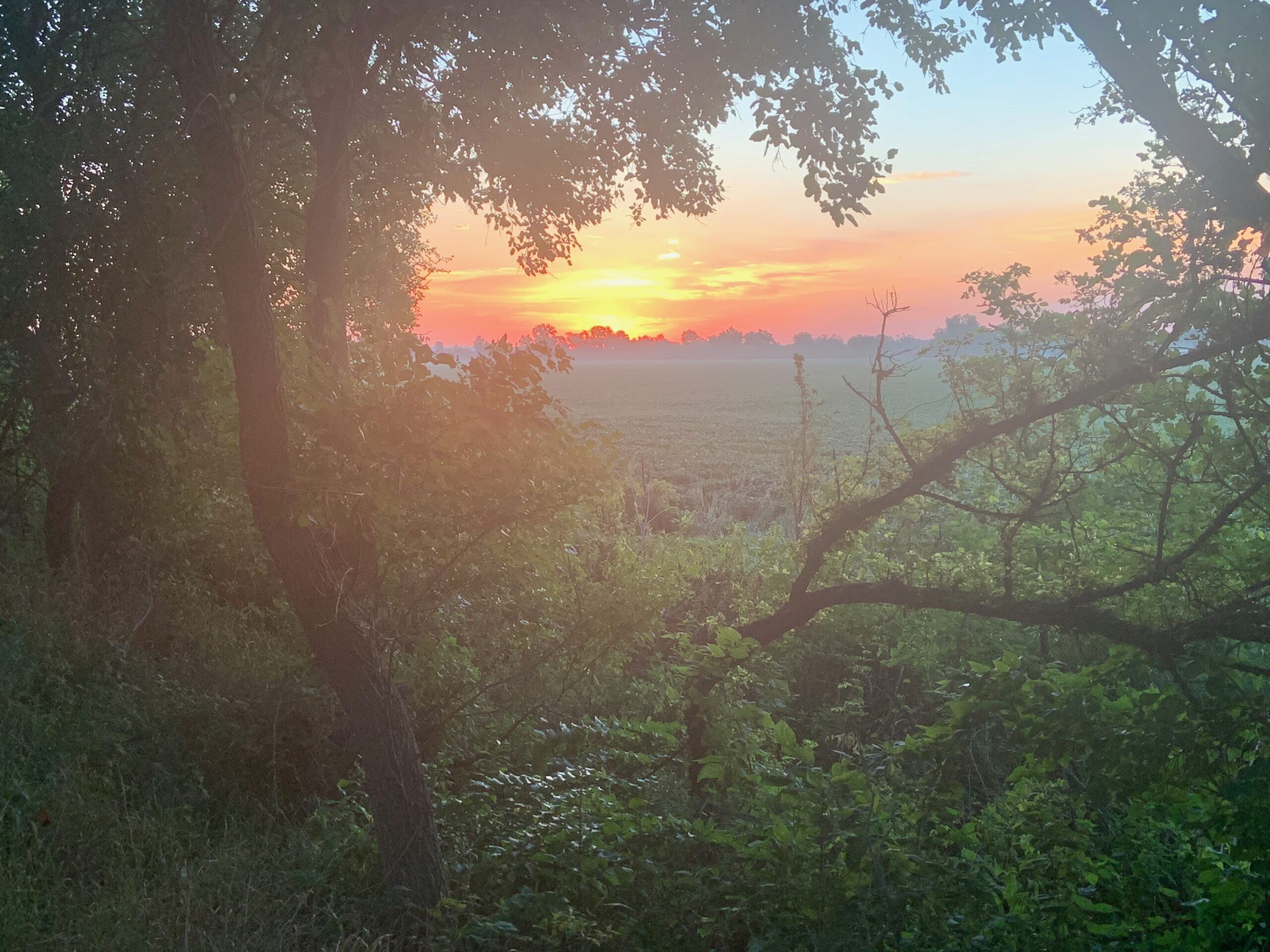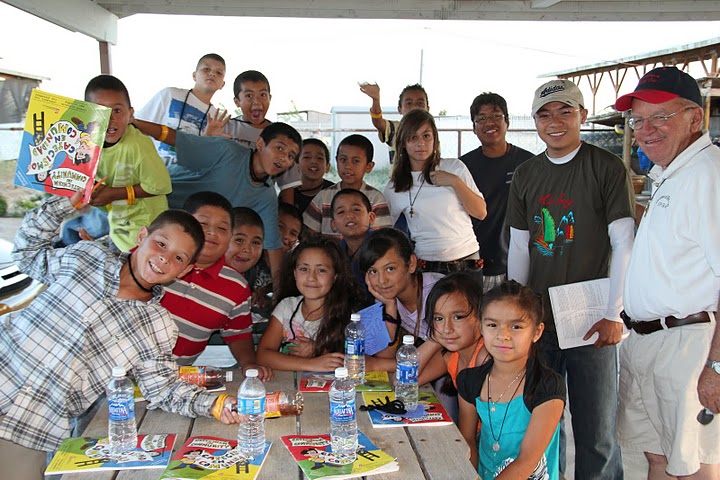Ministry Today / Ministerio Hoy
Introducing a new category, “Ministry Today”
From time to time, I will introduce categories for reflection. Pope Francis says that we need to abandon the attitude, “We have always done it this way.” (EG 33) Migrant ministry is for people on the periphery, on the fringes of society and the Church. Their challenges are urgent and need timely response. Our models for responding to the person in need are found in the life of Jesus and in the heroic examples of the saints. These reflections are on the saints with the small “s”, the people of faith not recognized in our midst. I hope that examples and stories of responding to the moment of need enlighten people in ministry of how to recognize when we are the hands of Jesus touching people most in need.
The people of his time saw Jesus as one different from other religious leaders. He was faithful to the teachings of the ancestors and the prophets, but unlike many religious leaders he touched the leper, he saw the shame of the prostitute, he listened to the woman at the well and he removed sin from those crippled by sin. He responded to the needs of those coming to him in the moment of their need. In future blog posts that will be categorized as “Ministry Today”, I invite the reader to be attentive to the times when our response may be out of the ordinary.
The first of these stories is not a story of migration, but a moment when a parish secretary and I learned a great lesson that neither of us will ever forget.
I called the woman and went to her home. When I got to the house, after her husband let me in, I met Megan. She was younger than I expected, only 34. I apologized that I had not come on Monday when her neighbor first called. She said, “Oh, Father, it is good you did not come on Monday or Tuesday. I was in a coma those two days.” She said that she was a nurse and knew that some cancer victims get a last burst of energy to say goodbye to their loved ones. She said, “I think I am in that moment.”
She thanked me for coming. She said that she was not Catholic, but everyone assumed that she was, because she often spoke about Fr. Joe. She was in the Marines when she was diagnosed with cancer, and the chaplain, Fr. Joe helped her in understanding her illness.
I asked her what she wanted me to do. Should I pray with her? She said that she had never been baptized and then said, “I wish I could be baptized.” I told her husband to bring some water and a towel. I baptized her. When it came time to leave, she tried to get out of her bed to say goodbye. I told her she did not have to get up, but she insisted. She hugged me and said, “You don’t know what this meant to me.”
The next morning, I went to bring her communion at 9:00 am, but she died at 7:00 am. At her funeral, her sisters told me that after being baptized she called each of them telling them that they too need to be baptized. Her father said, “I did not know how important that would be for her. Thank you.”
Presento una categoría nueva, “Ministerio hoy”
De vez en cuando, presentaré categorías para la reflexión. El Papa Francisco dice que debemos abandonar la actitud: “Siempre lo hemos hecho así”. (EG 33) La pastoral migrante es para personas en la periferia, en los márgenes de la sociedad y la Iglesia. Sus desafíos son urgentes y necesitan una respuesta oportuna. Nuestros modelos de respuesta al necesitado se encuentran en la vida de Jesús y en los ejemplos heroicos de los santos. Estas reflexiones son sobre los santos con la “s” minúscula, las personas de fe no reconocidas entre nosotros. Espero que los ejemplos e historias de cómo responder al momento de necesidad iluminen a las personas en el ministerio sobre cómo reconocer cuando somos las manos de Jesús tocando a las personas más necesitadas.
La gente de su tiempo veía a Jesús como uno diferente a otros líderes religiosos. Fue fiel a las enseñanzas de los antepasados y los profetas, pero a diferencia de muchos líderes religiosos, tocó al leproso, vio la vergüenza de la prostituta, escuchó a la mujer junto al pozo y quitó el pecado de los lisiados por el pecado. Respondió a las necesidades de quienes acudían a él en el momento de su necesidad. En publicaciones futuras de blog que se clasificarán como “Ministerio hoy”, invito al lector a estar atento a los momentos en que nuestra respuesta puede ser fuera de lo común.
La primera de estas historias no es una historia de migración, sino un momento en el que un secretario parroquial y yo aprendimos una gran lección que ninguno de nosotros olvidará jamás.
Megan
Era miércoles, una semana antes de Navidad. La secretaria de la parroquia vino a mí, avergonzado por lo que tenía que decir. Un feligrés llamó el lunes y le pidió a un sacerdote que visitara a su vecino muriendo de cáncer. La secretaria dijo: “El lunes todos los sacerdotes estaban en una reunión diocesana”. Puso una nota adhesiva en su computadora para que le dijera a un sacerdote al día siguiente. El martes, ella fue responsable de la fiesta de Navidad para personas mayores y se olvidó de la nota. El miércoles por la mañana me dio la nota.
Llamé a la mujer y fui a su casa. Cuando llegué a la casa, después de que su esposo me dejó entrar, conocí a Megan. Era más joven de lo que esperaba, solo 34. Me disculpé por no haber venido el lunes cuando su vecino llamó por primera vez. Ella dijo: “Oh, padre, es bueno que no hayas venido el lunes o el martes. Estuve en coma esos dos días”. Ella dijo que era enfermera y sabía que algunas víctimas de cáncer reciben una bendición de energía para despedirse de sus seres queridos. Ella dijo: “Creo que estoy en ese momento”.
Ella me agradeció por venir. Ella dijo que no era católica, pero todos asumieron que sí, porque a menudo hablaba del p. Joe. Estaba en los Marines cuando le diagnosticaron cáncer, y el capellán, el p. Joe, la ayudó a aceptar su enfermedad.
Le pregunté qué quería que hiciera. ¿Debería rezar con ella? Ella dijo que nunca había sido bautizada y luego dijo: “Ojalá pudiera ser bautizada”. Le dije a su esposo que trajera agua y una toalla. La bauticé. Cuando llegó el momento de irse, ella trató de levantarse de su cama para despedirme. Le dije que no tenía que levantarse, pero ella insistió. Ella me abrazó y dijo: “No sabes lo que esto significó para mí”.
A la mañana siguiente, fui a traerle la comunión a las 9:00 a.m., pero ella murió a las 7:00 a.m. En su funeral, sus hermanas me dijeron que después de ser bautizada, llamó a cada una de ellas para decirles que ellas también necesitan ser bautizadas. Su padre dijo: “No sabía lo importante que sería para ella. Gracias”.





